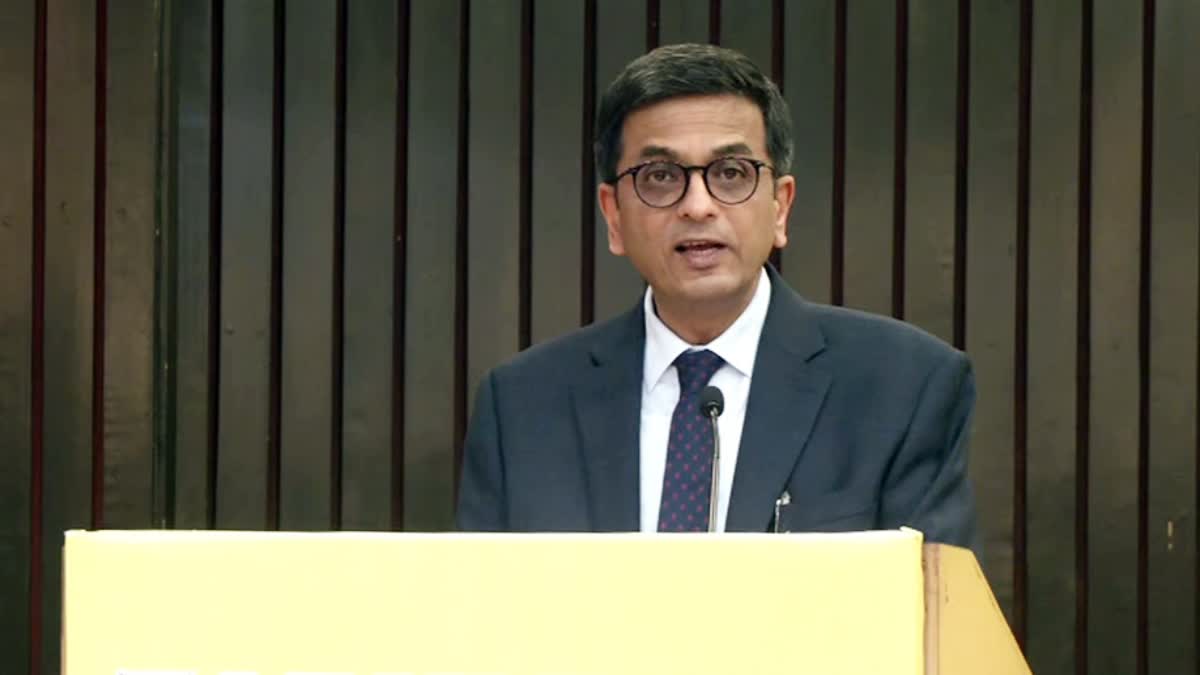Rio/New Delhi: The Chief Justice of India D Y Chandrachud has said that judges’ are neither princes nor sovereigns but they are service providers, and enablers of rights-affirming societies, and “our courts have come to be reimagined not as imposing ‘empires’, but as democratic spaces of discourse”.
The CJI was speaking on 'Digital Transformation and the use of technology to enhance judicial efficiency' at Rio in Brazil under the auspices of the J20 summit.
“As judges, we are neither princes nor sovereigns who are above the explainability requirement ourselves. We are service providers, and enablers of rights-affirming societies”, said the CJI.
He emphasized that the decision itself and the road leading up to it, must be transparent, understandable to everyone with or without a legal education and must be broad enough for everyone to walk alongside.
“Our courts have come to be reimagined not as imposing ‘empires’, but as democratic spaces of discourse. COVID-19 pushed the frontiers of our court systems- which were compelled to change overnight. Courts became more than just opaque physical spaces”, he said.
The CJI stressed that when we speak of judicial efficiency, we must look beyond the efficiency of the judge and think of a holistic judicial process, and added, “efficiency lies not only in outcomes but in these processes- which must ensure free and fair hearing”.
He said that courts perform a “shadow function” – they create guidelines for society. “Communication between courts and everyone else becomes central to not only the outcomes in individual cases but for the discursive health of the institution, through critical engagement with its decisions”, said the CJI.
The CJI said technology is not a one-stop panacea for all social inequalities. “Complicated issues such as AI-profiling and consequent stigmatisation of individuals in large language models, algorithmic bias, misinformation, exposure of sensitive information, and opacity of black box models in AI must be tackled with sustained deliberative efforts and engagement about the dangers”, he said.
He said even after the Covid-19 pandemic, hybrid hearings continued to be a feature of courts in India. However, digital divide, representational asymmetry between parties to the same dispute, and low-connectivity locations are some of the other bottlenecks that we must tackle, the CJI emphasized.
The CJI said there are two crucial areas in which digitisation and technology can help us create better justice delivery mechanisms. “One is streamlining of the pre-decision processes and the other is the post-decision measures that improve access to and engagement with the decision itself. Courts across jurisdictions are using technologies ranging from basic organisation, to sophisticated artificial intelligence and machine learning tools”, he said.
He said the potential of technology lies in how we convert it to minimise pre-existing inequalities, which are not neatly stacked compartments and they are rather a complex web of interwoven realities.
"Virtual hearings have democratised access to the Supreme Court. It has opened the space for people who could not appear before the court without great difficulty. Persons with physical impairments, pregnant women, persons in their advanced years can now choose to opt to access the courtroom virtually. Over 750,000 cases have been heard over video conferencing," said the CJI.
He said proceedings of important constitutional cases in the Supreme Court are live-streamed on its YouTube channel - bringing constitutional deliberations to the homes and hearts of all citizens.
"We believe that sunshine is the best disinfectant, and that correct and accessible information is an antidote to disinformation," he said.
He said in India, it is quite common for judges to engage with a bar and play the devil’s advocate, in order to extract their best response. “However, this is sometimes mistaken as the opinion of the bench and misleading clips of the proceedings are circulated on the internet. Fortunately, we have a robust network of legal journalists who live-report the proceedings and help dispel disinformation”, he said.



